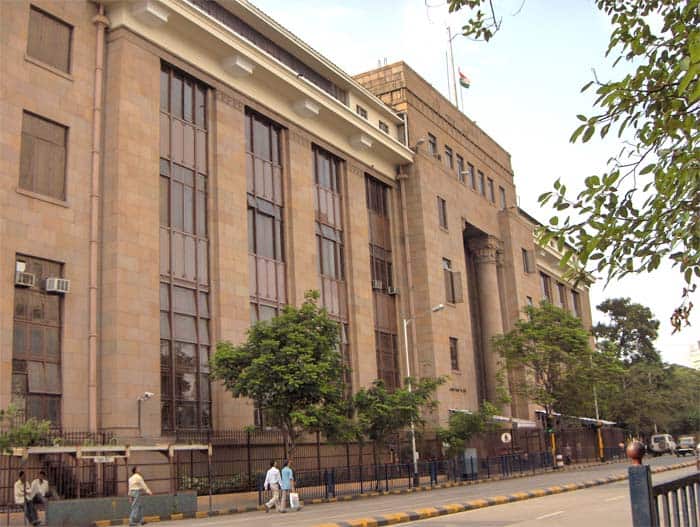Join Our Telegram channel to stay up to date on breaking news coverage
Crypto-phobia, or crypto enmity, might as well be a real thing, considering the number of nations that have taken negative stances towards digital assets since they began to gain widespread adoption. Latest on the list of anti-crypto countries is India. In India, regulations against cryptocurrency exchanges and entities associated with it have grown increasingly harsh. Interestingly, the country has a budding, passionate crypto community that apparently do not share the authorities’ repulsion for cryptocurrency.
The Indian crypto community was dealt a staggering blow in late April, when news circulated regarding a proposed ban on cryptocurrencies. The “Banning of Cryptocurrencies and Regulation of Official Digital Currencies Bill 2019″ was purportedly rooted in the country’s Prevention of Money Laundering Act, since the prevailing concern was the use of crypto for money laundering and other criminal activities.
If the proposed bill is passed into law, mining, generating, holding, buying, selling or dealing in cryptocurrencies “directly or indirectly” will become illegal in the country. Offenders would be “cognisable and non-bailable”, and could face up to a ten-year prison sentence as well as hefty fines, amounting to up to three times their gains.
Going to prison for holding crypto sounds like a pretty harsh judgment, but let’s look at things from the Indian government’s point of view.
Crypto Is Unsafe, Or Is It?
In April 2018, alongside the RBI’s announcement to cut off banks that continued to deal with crypto exchanges, the bank released a statement, in which it outlined its reasons for the measures taken against virtual currencies in India. The text started on a sunny note, stating that the RBI supported cryptocurrencies as technological innovations that could help to “to improve the efficiency and inclusiveness of the financial system”, but it soon turned pretty sour.
The RBI then went on to state that cryptocurrency and the use of digital assets came with “various risks.”; risks serious enough for them to disassociate with anyone even remotely involved with cryptocurrency. Speaking separately at a press conference after the statement was released, RBI Deputy Governor Bibhu Prasad Kanungo stated that cryptocurrencies have the potential to “endanger financial stability, adding:
“Internationally, while the regulatory response to these tokens are not uniform, it is universally felt that they can seriously undermine the AML (anti-money laundering) and FATF (Financial Action Task Force) framework, adversely impact market integrity and capital control. And if they grow beyond a critical size, they can endanger financial stability as well.”
To Crypto or Not To Crypto?
India’s relationship with cryptocurrency has been indecisive- to say the least. In the same bill that was proposed to ban cryptocurrency, they proposed the development of a new national cryptocurrency called the Digital Rupee, so it is impossible to say that it is ignorance of the impact of a digital currency that’s fueling the stern laws regulating cryptocurrency in the country.
In April 2018, the Reserve Bank of India (RBI) banned banks and other financial institutions under its jurisdiction from working with crypto-exchanges and other crypto-related services. The move tightened the regulatory noose on not only Indian crypto investors, but the crypto exchange sector in the country, which was already showing considerable growth. The regulation was thoroughly enforced, prohibiting bitcoin trading on domestic exchanges – and the bill gave existing exchanges until 6 July 2018 to wind down.
In December of the same year, at least two government committees came to contrasting conclusions regarding the regulation of cryptocurrencies in India, within weeks of each other.
One committee ruled that all cryptocurrencies should be legalized. On the other hand, an undisclosed, but reportedly senior official that attended the committee’s cryptocurrency panel said that crypto legalization is inevitable.
However, the optimists lost the crypto tussle, and banks went ahead to sever ties with any and every crypto exchange in the country, in a bid to stay in RBI’s good books. This led to the demise of the budding crypto exchanges in India, the latest one being Mumbai-based exchange, Koinex.
According to the statement issued by the exchange as they closed their crypto doors, the banks not only refused to service crypto payments, but also denied the exchanges access to funds for non-crypto payments like salary, rent and purchase of equipment. As long as you had a crypto-related attribute in his ID, the banks would not be servicing you, sir.
Is There Hope For Crypto in India?
Chances of crypto legalization in India are looking pretty bleak at the moment, and the government’s plot may be working- considering the dwindling numbers of adoption in India. Besides, the already alarming rates of crypto-related crime may be hardening the Indian authorities’ stance against crypto. However, it has to be said that banning crypto because it is being used for crime is like banning Adderall because users abuse it.
The message is the same for every anti-crypto nation, though we’re not sure why it is hard to decipher: cryptocurrency is a tool, just like everything else on the planet.
Join Our Telegram channel to stay up to date on breaking news coverage


